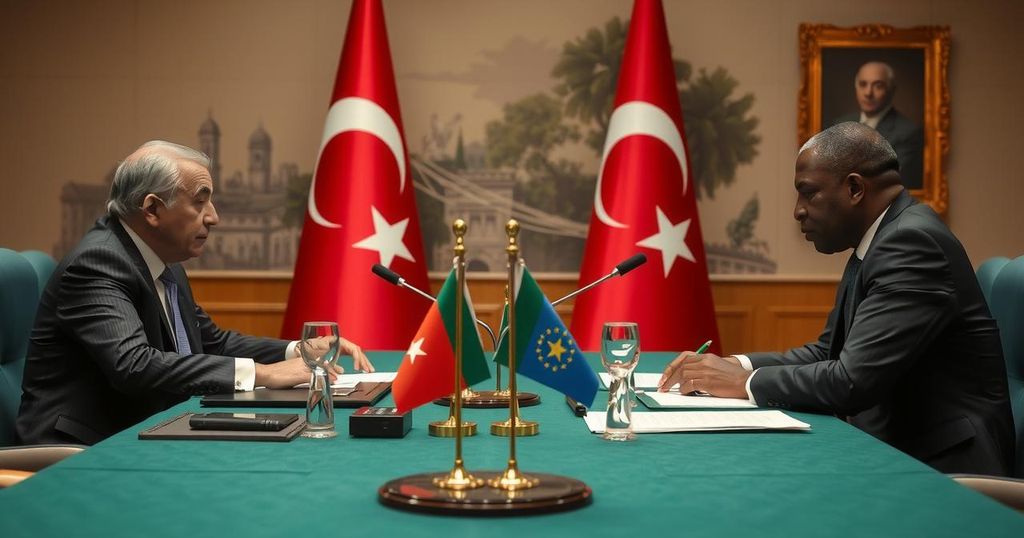Ethiopia and Somalia Resolve Dispute Through Turkish Mediation

Ethiopia and Somalia have reached a deal to resolve a year-long conflict after Turkish President Erdogan brokered talks. The dispute originated when Ethiopia gained sea access through a deal with Somaliland, alarming Somalia. This agreement marks a critical step towards improving relations and stability in the region.
A significant development has emerged in East Africa as Ethiopia and Somalia have successfully negotiated a resolution to a prolonged conflict that had persisted for nearly a year. This pivotal agreement was attained following diplomatic interventions led by Turkish President Recep Tayyip Erdogan. The ongoing tensions began after Ethiopia secured a deal with Somaliland to enhance its maritime access, which sparked unrest and diplomatic strain between the two neighboring nations. The discussions facilitated by Turkey reflect a growing role of external powers in regional conflicts, particularly in Africa.
The conflict between Ethiopia and Somalia traces back to Ethiopia’s need for access to the sea, which culminated in an agreement with Somaliland, a self-declared independent region. This move was perceived as a direct threat by Somalia, leading to heightened tensions between the two countries. The involvement of Turkish diplomatic efforts indicates a shift in geopolitical influence, highlighting Turkey’s increasing engagement in African affairs and its striving to mediate conflicts in the region. Understanding these dynamics is essential to grasp the implications of this newly forged agreement and the potential for lasting peace in the Horn of Africa.
The resolution of the Ethiopia-Somalia dispute signifies a hopeful turn in regional relations, emphasizing the importance of diplomatic negotiations in resolving conflicts. The Turkish mediation underscores the strategic necessity of international collaboration in fostering peace and stability in East Africa, an area often characterized by historical animosities and geopolitical complexities. Therefore, this agreement may pave the way for improved bilateral relations and collaborative efforts towards mutual economic and political development.
Original Source: www.dw.com








